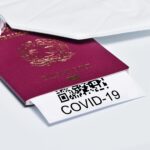Table of Contents
- The High-Stakes Nature of the Post-Graduation Work Permit Application
- Mistake 1: The Devastating Impact of Attending a Non-Eligible DLI
- Mistake 2: Failing to Maintain Continuous Full-Time Student Status
- Mistake 3: The Critical Error of Taking Unauthorized Breaks in Your Study
- Mistake 4: Disregarding the Strict Rules on Authorized Work
- Mistake 5: Allowing Your Study Permit to Expire Before Applying
- Mistake 6: Missing the Inflexible 180-Day Application Deadline
- Mistake 7: Submitting an Incomplete or Inaccurate PGWP Application Package
- Mistake 8: The Misconception Surrounding Distance Learning Eligibility
- Mistake 9: Overlooking the Program’s Origin and Institution Type
- Mistake 10: Applying for a PGWP After Previously Holding One
- Frequently Asked Questions About the PGWP Application
The High-Stakes Nature of the Post-Graduation Work Permit Application
For many international students, the Post-Graduation Work Permit (PGWP) represents more than just a document; it is the pivotal bridge between completing their Canadian education and launching a professional career in the country. This open work permit allows graduates of eligible Canadian Designated Learning Institutions (DLIs) to gain valuable Canadian work experience, a crucial component for many of Canada’s permanent residency pathways, such as the Canadian Experience Class (CEC) under the Express Entry system. However, the path to securing a PGWP is fraught with potential pitfalls. The application process is governed by strict, and often unforgiving, eligibility criteria set forth by Immigration, Refugees and Citizenship Canada (IRCC). A single misstep, an oversight, or a misunderstanding of the rules can lead to a refusal, potentially derailing an individual’s long-term immigration plans. It is imperative for students to understand that the PGWP is not an automatic entitlement upon graduation; it is a privilege that must be earned by meticulously adhering to the conditions of their study permit throughout their academic journey. This guide illuminates ten of the most common and devastating mistakes that can jeopardize a PGWP application, providing the essential insights needed to navigate this critical process successfully.
Mistake 1: The Devastating Impact of Attending a Non-Eligible DLI
Perhaps the most fundamental and heartbreaking error a student can make is completing a program of study at an institution that is not eligible to offer PGWP-qualifying programs. A Designated Learning Institution (DLI) is a school approved by a provincial or territorial government to host international students. However, not all DLIs make their graduates eligible for a PGWP. The onus is entirely on the student to verify an institution’s PGWP eligibility before enrolling. This information is publicly available on the official IRCC website. The list specifies which DLIs offer programs that will allow graduates to apply for this coveted work permit. The most common eligible institutions include public post-secondary schools like colleges and universities, some private post-secondary institutions operating under the same rules as public schools, and private secondary or post-secondary institutions offering qualifying programs of 900 hours or more leading to a specific diploma or degree. Choosing an institution that is a DLI but does not offer PGWP-eligible programs means that, regardless of how well a student performs academically or how long their program is, they will be ineligible for a PGWP upon graduation. This mistake is often irreversible and can represent a significant loss of time, money, and the opportunity to gain Canadian work experience.
Mistake 2: Failing to Maintain Continuous Full-Time Student Status
A core requirement for PGWP eligibility is that the applicant must have continuously studied full-time in Canada in each academic session throughout their program(s) of study. IRCC defines full-time status based on the institution’s own criteria. Falling into part-time status, even for a single semester, can render a student ineligible. This is a common pitfall, as students may drop courses for various reasons, such as academic difficulty or personal issues, without realizing the severe immigration consequences. From a strategic standpoint, it’s crucial to consult with both an academic advisor and an immigration professional before making any changes to course loads. There is, however, one significant exception to this rule: if the final academic session is the only part-time semester because the student needed fewer courses to complete their program requirements, IRCC generally permits this. For example, if a student only has two courses left in their last semester to graduate, they can take just those two courses without jeopardizing their PGWP application. Beyond this specific exception, any unauthorized part-time study is a major red flag for immigration officers and a leading cause for PGWP refusals. Diligent record-keeping of enrollment letters and transcripts confirming full-time status for every semester is essential for a strong application.
Mistake 3: The Critical Error of Taking Unauthorized Breaks in Your Study
While students are permitted to take regularly scheduled breaks between academic terms (such as the standard summer or winter holidays), taking an unauthorized leave of absence from a program can be fatal to a future PGWP application. The requirement for continuous study is central to maintaining eligibility. If a student needs to take time off for personal, medical, or other reasons outside of the institution’s official academic calendar, this must be formally authorized by their DLI. An authorized leave should be documented with an official letter from the school, and this leave cannot exceed 150 days. If the break is longer than 150 days, or if it was not officially approved by the DLI, IRCC will consider the student to have broken the continuity of their studies. Upon returning to Canada, such a student might be required to obtain a new study permit, and the time studied before the unauthorized break may not count toward PGWP eligibility. It is a common misconception that simply being enrolled is enough; active, continuous engagement in the program is what IRCC assesses. Therefore, any student considering a break must navigate the process carefully, securing all necessary documentation from their DLI to prove the leave was approved and did not violate the conditions of their study permit.
Key Takings for Maintaining Student Status:
- Verify DLI Eligibility: Always confirm that your chosen Designated Learning Institution (DLI) and specific program are listed as PGWP-eligible on the official IRCC website before you enroll.
- Maintain Full-Time Status: You must study full-time in every academic session. The only exception is if your final semester is part-time because you have fewer courses left to complete your program.
- Secure Authorized Leave: If you must take a break from your studies, ensure it is an officially authorized leave from your DLI and does not exceed 150 days. Keep all documentation.
- Avoid Unauthorized Work: Never work more than the 20 hours per week permitted off-campus during regular academic sessions. Do not engage in any work before your program of study has officially started.
Mistake 4: Disregarding the Strict Rules on Authorized Work
The conditions under which an international student can work in Canada are explicitly defined and must be strictly followed. Violating these rules is a serious breach of the Immigration and Refugee Protection Act (IRPA) and can lead not only to a PGWP refusal but also to future inadmissibility. Most study permits allow students to work off-campus for up to 20 hours per week during regular academic sessions and full-time during scheduled breaks. Working even one hour over this 20-hour limit during a school term constitutes unauthorized work. Another common error is starting a job before the program of study has officially begun. The authorization to work only commences after the student has started their full-time studies, not simply upon arrival in Canada. Furthermore, students must ensure they have a valid Social Insurance Number (SIN) and that their study permit contains the condition allowing them to work. Engaging in any form of unauthorized employment can be easily discovered by IRCC through tax records or other means, and such non-compliance is a clear basis for refusing a PGWP application. It signals to the officer that the applicant may not respect Canadian laws, undermining the integrity of their application.
Mistake 5: Allowing Your Study Permit to Expire Before Applying
Timing is absolutely critical in the PGWP application process. A student must hold a valid study permit at the time they submit their PGWP application. Letting a study permit expire before applying creates a significant and stressful complication. If a student’s study permit expires, they lose their student status and must immediately stop studying or working. They then have a 90-day window to apply to restore their status. Applying for restoration of status is a more complex, costly, and uncertain process than a standard application. It requires paying additional fees and providing a detailed explanation for the failure to maintain status. During the period that a student is out of status and waiting for a decision on their restoration application, they are not permitted to work. This can create financial hardship and disrupt career plans. The best practice is to be acutely aware of the study permit’s expiry date and to either apply for the PGWP well before it expires or, if necessary, apply for a Visitor Record to legally remain in Canada while preparing the PGWP application. Proactive planning is the only way to avoid the precarious situation of being out of status.
Mistake 6: Missing the Inflexible 180-Day Application Deadline
IRCC enforces a strict and non-negotiable deadline for submitting a PGWP application. Applicants have exactly 180 days from the date they receive their final marks and a formal written notification of program completion (such as a transcript or an official letter) from their DLI. It is crucial to note that this 180-day countdown does not start from the date of the convocation ceremony, which often occurs months later. This is a frequent point of confusion that leads to missed deadlines. Once this 180-day window closes, the opportunity to apply for a PGWP is permanently lost. There are no extensions or exceptions. Students should request their official letter of completion and final transcript from their institution as soon as they are available to start the application process promptly. Waiting until the last minute is a perilous strategy, as unexpected document issues or technical glitches with the online portal can cause a fatal delay. The responsibility lies with the applicant to gather all necessary documents and submit a complete application well within this mandatory timeframe to secure their eligibility for this one-time opportunity.
Mistake 7: Submitting an Incomplete or Inaccurate PGWP Application Package
A Post-Graduation Work Permit application is a formal request to IRCC, and it must be treated with the utmost diligence. Submitting an application with missing documents, incomplete forms, or inaccurate information is a recipe for refusal. An IRCC officer is not obligated to request missing information; they can, and often do, refuse an application outright based on the information provided. Common errors include failing to provide the official letter of completion and the final transcript, which are the primary documents proving program completion. Other mistakes involve filling out the forms incorrectly, providing conflicting information across different documents, or failing to pay the correct government processing fees, which include both the work permit fee and the open work permit holder fee. Every question on the application forms must be answered truthfully and completely. Any hint of misrepresentation can have severe consequences far beyond a simple refusal. Before submission, the entire application package should be reviewed multiple times to ensure it is perfect. For many, this is the most important immigration application of their lives, and its preparation should reflect that level of seriousness and attention to detail.
Mistake 8: The Misconception Surrounding Distance Learning Eligibility
The rules regarding distance learning (online courses) have been a source of significant confusion, particularly with the policy shifts that occurred during and after the COVID-19 pandemic. Under the standard, pre-pandemic rules, programs completed primarily through distance learning (more than 50% of the program) from within or outside Canada are not eligible for the PGWP. While IRCC introduced temporary facilitative measures allowing online studies during the pandemic to count toward PGWP eligibility, these measures had specific start and end dates. Students who began their programs after these deadlines or whose programs were always intended to be online may find themselves ineligible. It is critical for students to understand the specific policy that applies to their study period. If a portion of a program was completed online, the student must be prepared to prove that this was due to pandemic-related restrictions or was part of a program that was not delivered more than 50% by distance learning under normal circumstances. Relying on outdated information or assuming that all online studies are acceptable is a significant risk that can lead to an unexpected and disappointing refusal.
Mistake 9: Overlooking the Program’s Origin and Institution Type
Another nuanced but critical factor is the nature of the program and the institution itself. To be eligible for a PGWP, the student must have completed a program of study at a Canadian institution located in Canada. This may seem obvious, but it can become complicated in certain scenarios. For instance, attending the Canadian campus of a foreign university or completing a foreign program offered at a Canadian DLI will not make a student eligible for a PGWP. The qualification itself must be granted by a Canadian educational institution. Additionally, the type of program is important. Programs that consist primarily of English or French as a second language (ESL/FSL) courses or general interest/self-improvement courses are not eligible. The program must be an academic, vocational, or professional training program of at least eight months in duration that leads to a degree, diploma, or certificate. Thoroughly vetting not just the DLI, but the specific program of study against IRCC’s explicit criteria is a non-negotiable step in ensuring a successful PGWP application outcome.
Mistake 10: Applying for a PGWP After Previously Holding One
The Post-Graduation Work Permit is a once-in-a-lifetime opportunity. An individual is only eligible to receive a PGWP once in their lifetime. This rule is absolute. Even if a student previously received a PGWP for a short one-year certificate program and later completes a master’s or PhD degree, they cannot apply for a second PGWP. This is a crucial point for long-term academic and immigration planning. Students should be strategic about when they choose to use this opportunity. For instance, it may be more advantageous to complete a longer program of study (two years or more) to qualify for a three-year PGWP, which provides more time to gain skilled work experience for permanent residency. Accepting a PGWP after a short program may provide immediate work opportunities but will foreclose the option of getting another one after further, more advanced studies. Understanding the finality of the PGWP is essential for making informed decisions about one’s educational and professional future in Canada. It underscores the importance of maximizing the benefit of this unique and valuable permit the first and only time it is granted.
Frequently Asked Questions About the PGWP Application
What is a Designated Learning Institution (DLI)?
A Designated Learning Institution, or DLI, is a school that has been approved by a provincial or territorial government in Canada to host international students. However, it is important to remember that not all DLIs offer programs that make their graduates eligible for a Post-Graduation Work Permit (PGWP). Applicants must verify their specific institution’s PGWP eligibility on the official IRCC website.
How long do I have to apply for a PGWP after my studies?
You have a strict, non-extendable deadline of 180 days to apply for a PGWP. This 180-day period begins from the date you receive your final marks and an official notification of program completion from your DLI, such as a completion letter or final transcript, not from your graduation ceremony date.
Can I study part-time and still get a PGWP?
Generally, you must maintain full-time student status during every academic session of your program to be eligible for a PGWP. The only major exception is if your very last semester is part-time because you only needed a few remaining credits to complete your program requirements. Unauthorized part-time study in any other semester can make you ineligible.
What happens if my study permit expires before I apply for the PGWP?
You must hold valid status in Canada, such as a valid study permit, when you submit your PGWP application. If your study permit expires, you will fall out of status and must first apply to restore your student status within 90 days, which is a more complex and uncertain process. It is crucial to apply for your PGWP before your study permit expires.
Talk to us to find out more. ->
The content above is not intended to provide legal advice or opinions of any kind and may not be used for professional or commercial purposes.







